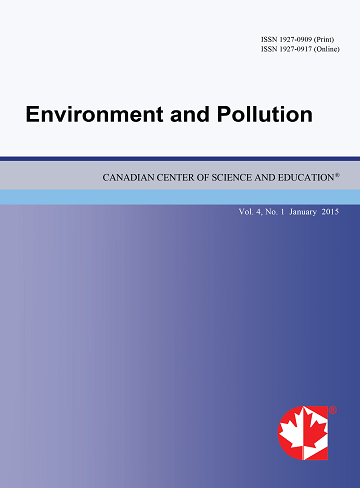Vulnerability and Climate Change Perceptions: A Case Study in Brazilian Biomes
- Teresa Silva-Rosa
- Michelle Michelle Bonatti
- Andrea Vanini
- Catia Zuffo
Abstract
Based on the assumption that vulnerability is socially constructed, and may thus change according to transformations in human action, it appears necessary to consider the issue at the core of studies on the social aspects of Climate Change (CC), risk level and disaster prevention. The social nature of vulnerability is determined by elements such as poverty, inequality, exclusion and access to sanitation, water, food and education among other factors.
In 2010, a study was undertaken in the ambit of the project “Climate Change, Social Inequalities and Vulnerable Populations” about the perception of and an assessment of vulnerability. Information was gathered through interviews using structured questionnaires administered in communities in three Brazilian biomes: the Atlantic Forest, the Amazon and the Semi-Arid and Cerrado region. This paper discusses the result of three case studies: one in Rondonia in the Amazon, and two in the Atlantic Forest biome, one in Rio de Janeiro and another in Santa Catarina.
Two points in common among the communities should be highlighted. (1) None of the communities have plans or actions to adapt to natural climate variability, much less to CC. This makes the communities more vulnerable and unprepared to act with protective or reactive preventive measures. (2) Thus, it is important to develop a plan with actions that address the situation of “organized irresponsibility”, understood as a network of mechanisms that treat environmental problems as normal, or regard them as being of governmental responsibility alone.
- Full Text:
 PDF
PDF
- DOI:10.5539/ep.v3n1p82
Journal Metrics
Index
- Academic Journals Database
- Berkeley Library
- CAB Abstracts
- CAS (American Chemical Society)
- CNKI Scholar
- COPAC
- CrossRef
- DTU Library
- Elektronische Zeitschriftenbibliothek (EZB)
- EuroPub Database
- Excellence in Research for Australia (ERA)
- Genamics JournalSeek
- Google Scholar
- Harvard Library
- Infotrieve
- Jisc Library Hub Discover
- JournalGuide
- JournalTOCs
- LOCKSS
- Max Planck Institutes
- Mir@bel
- PKP Open Archives Harvester
- Pollution Abstracts
- Publons
- Pubmed journal list
- ROAD
- Scilit
- SHERPA/RoMEO
- Standard Periodical Directory
- Stanford Libraries
- UCR Library
- Ulrich's
- UniCat
- Universe Digital Library
- UoS Library
- WorldCat
- Zeitschriften Daten Bank (ZDB)
Contact
- Albert JohnEditorial Assistant
- ep@ccsenet.org
